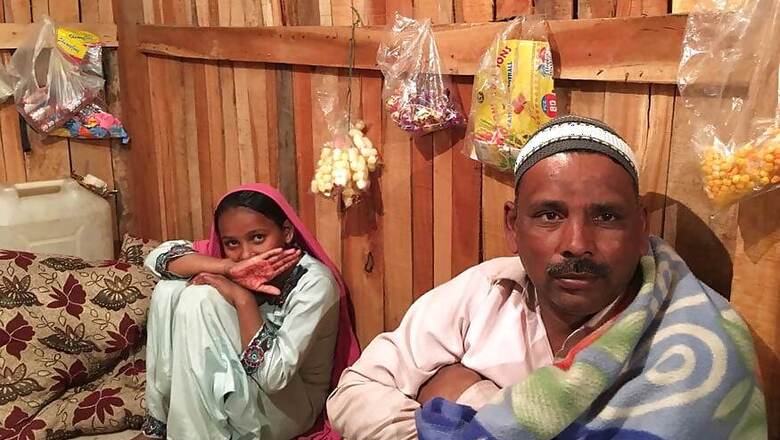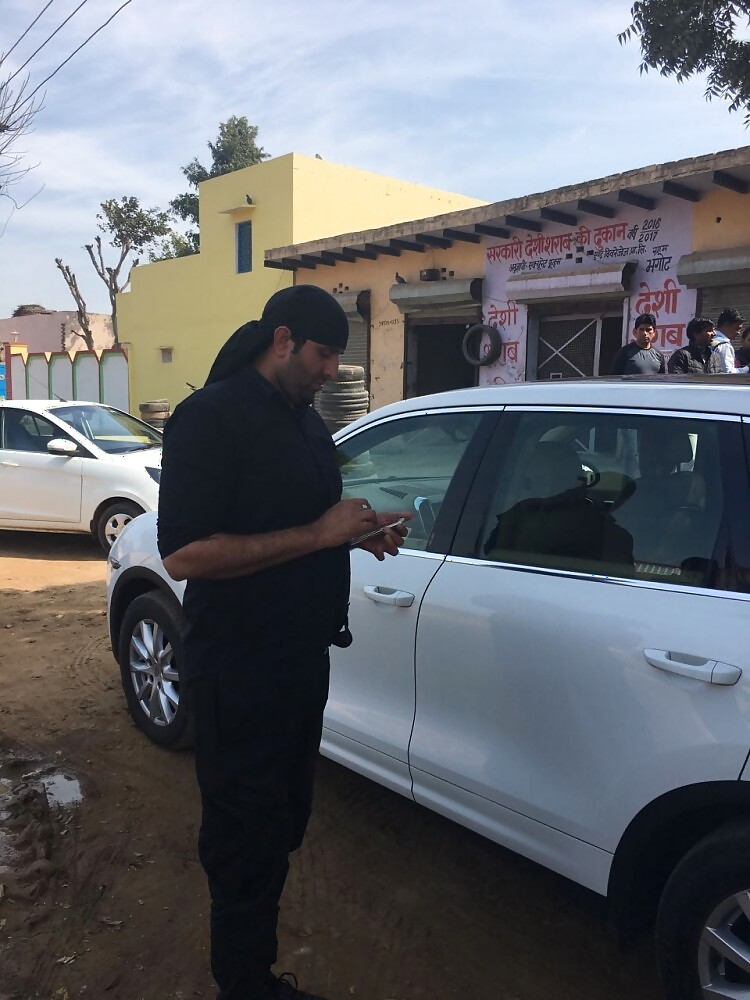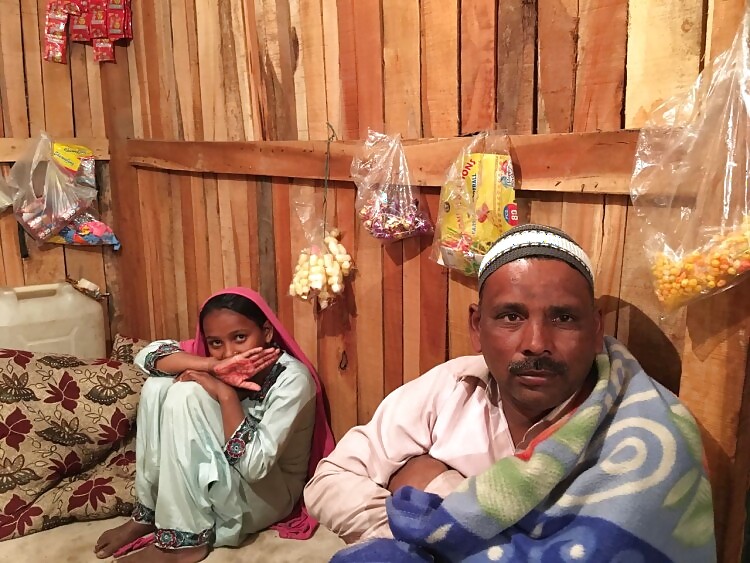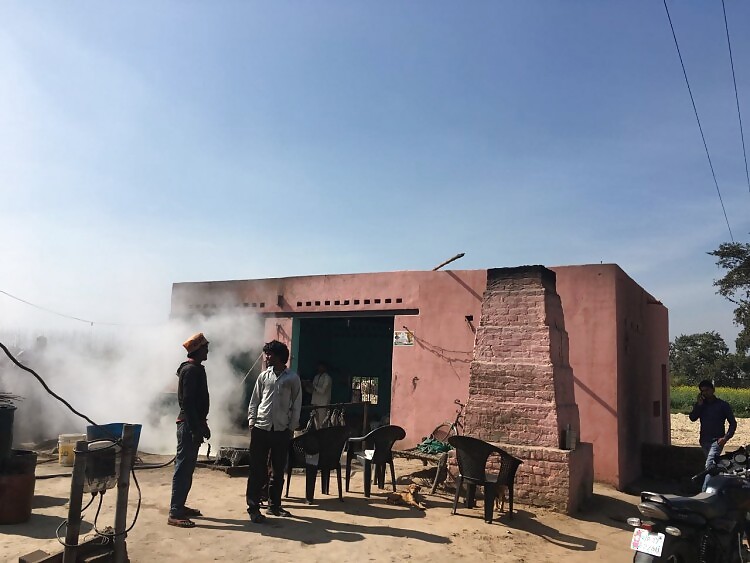
views
Commando caper
The only thing that separates him from the elite club of commandos is his paunch. Otherwise, he has all the characteristics of a member of the corps d'elite: the black bandanna, the black dress and black shoes. Nike sneakers, rather. His arsenal, he says, is off limits because of elections. The tall commando claims confidently he is with Haryana police, but has been attached to the Kartar Singh Bhadana family for many years. And in a village near Baghpat, his handsome black-clad figure stands aloof against a gleaming white Porsche, which is the vehicle the Bhadana scion uses to campaign for his father. As Mannu, the Bhadana fils, is busy touching the feet of locals, the commando gets into a friendly chat with a local and, as the conversation abruptly ends because the son finishes his stumping and gets into the Porsche, hands him a dingy bottle of mineral water, a brand manufactured by the son.

Hand on heart
Muskan sits with her shopkeeper father and painstakingly draws hearts on her the palm of her elegant hand. Her story is heartbreaking. She now stays in a raggedly built camp in Kairana. And is lucky to have an enterprising father who, by the dint of his hard work, has managed to set up a small shack outside the camp. Muskan may be called a child of darkness, but the shop in which she sits proudly with her Muslim father is nicely lit and stands out in the gloomy darkness that is the rundown camp. In her bright, shimmery dress, she helps her father complete his chores. And also, a sign of her remarkable intelligence, completes her father's harrowing story, which is told in broken-down sentences that he says while completing his duties as a shopkeeper competently. We don't want...the father says...to go back...the daughter completes the sentence. In a dismal pocket of dejection that is the Kairana camp, this songlike tango between the father and daughter offers a glimmer of hope.

Jaggery-pokery
Across swathes of western UP, this is jaggery season. On the busy, pitted roads cane-loaded carts create long traffic jams and small jaggery production facilities with their thick swirls of smoke can be recognised from afar. The chimneys of brick kilns emit wispy clouds of smoke while the jaggery factories, which do not have any tall chimneys, throw out fiery smoke swirls. At one factory, a jaggery producer, amid obese stacks of cane stalks that have gone bad, dissuades locals from buying the stuff. Inside his small unit, nicely cut lumps of light brown jaggery are being tightly packed into brown cardboard boxes. This is for the market, he says; there they accept it without many questions. The chimney, perhaps in anger, belches a great volume of smoke and, in the skies, a jet leaves its long trail, perhaps staining the sky in annoyance.

A different DeMonstration
Prime Minister Modi unleashed his demonetisation drive in November and those who had marriages planned unleashed a volley of gripes on him and his sarkar. Thankfully, for Modi, the marriage season in December and the gripes reduced in intensity. Now, in early February, when the marriage season is back in full flow, the jibes have given way to typical aggressive singing and dancing. Wedding parties with their blaring mobile orchestras are back on the narrow roads. Are they celebrating the end of demonetisation woes? In Saharanpur, a row of banquet halls is garishly lit and loud Punjabi songs are creating cacophony. Singing and dancing and road-blocking wedding revellers don't give a hoot about the traffic gridlock. And some of them are even throwing new currency in the air. Will the prime minister see this happy spectacle and think of another ban? Unlikely. Let the singing and dancing continue.
Kohinoor, not the diamond
Anita Anand and William Dalrymple's new book on the diamond that India lost almost two centuries ago but still fantasises about will not prepare you for this. Out of nowhere, as the turn from Loni to Baghpat becomes more trickier to manoeuver because of a stubborn crowd of auto-rickshaws, comes into view a signboard extolling the virtues of Kohinoor City. Now, Indians are adept at selling dreams to their gullible brethren, but the fact that this signboard hangs prominently from a grimy half-completed flyover makes it a fantastic metaphor for India's heaving obsession with unattainable dreams. On the way to Baghpat, amid pockets of extreme poverty, stand empty apartment towers named fancily after orchids and galaxies. These too are the elusive kohinoors that many in India aspire to, but never attain.
Raees in poorland
Posters of Shahrukh Khan in full bearded splendour, looking sullen and forlorn, in his new film Raees, are splashed all over Kairana. On old, derelict and grimy buildings, the Raees posters carry an irony that many in Kairana miss. Parts of western UP are awash in farm riches, but many areas still battle poverty that can grind anyone down. Kairana also houses an infamous camp, which was established to rehabilitate Muslims ejected out of their homes by murderous, riotous crowds four years ago. In this camp and in others too, people are Raees in their social relations, but not monetarily. For that, they still have Shahrukh on their dirty walls to look up to. Many casteist, religious inequalities abound in India; and until a solution is found to tackle and deal with all of them, Raees better stays postered on our smudgy walls.




















Comments
0 comment